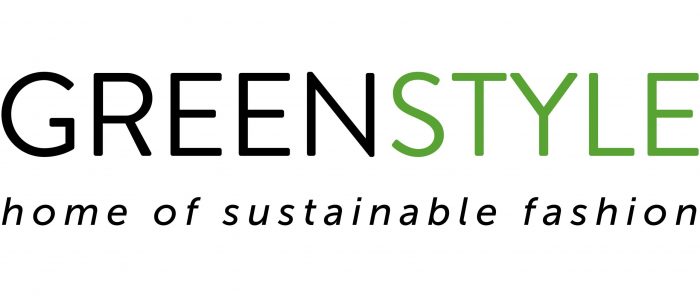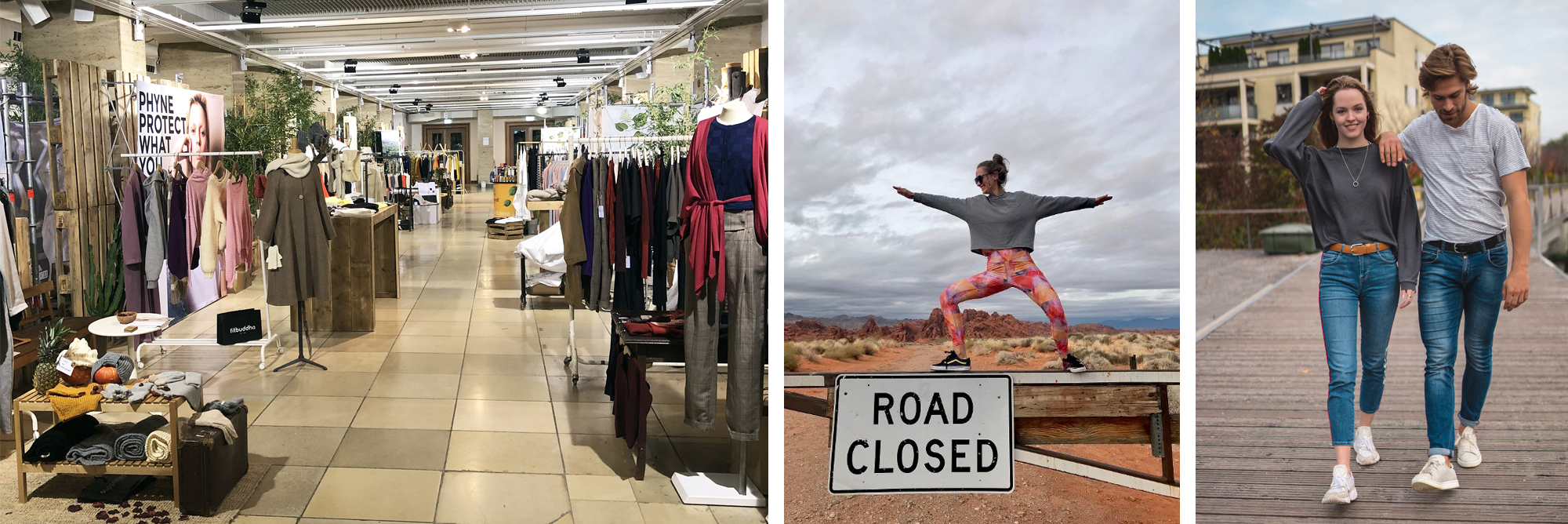B2 – radioReportage from Leoni Thim – From Fast – Fashion to Fair Fashion – How clothing becomes more sustainable
Click here for the podcast (german)
manomama | Sina Trinkwalder
“We have to do it even better so that we can somehow get a grip on this climate crisis,” says manomama founder Sina Trinkwalder, who has been producing sustainable fashion in Augsburg for over ten years, because here too we have “the people who do not have a doctorate can “have to give an opportunity to a job. And that, according to Trinkwalder, is the cheaper option in the long run anyway. Because it takes a long time to grind into processes in fashion production, which is why she tries to produce similar pieces.
Your goal? Produce less, throw away less, recycle more. That is why backpacks and sorted borders emerge from the remains of awnings and adorn bras. She wants to produce CO2-neutral and this year without using new resources.
When I produce something new, new CO2 is created.
If I then burn the leftovers, there is double CO2.
If I refuse leftovers, I save CO2 consumption.
https://www.instagram.com/p/B31U-tkoAOV/
And in relation to Corona: Manomama produces mouth-nose masks in a chord.
Jesango | Catja Günther, Alina Friedrichs, Sophia Wittrock
Jesango is Esperanto and means “yes to change”. The three Munich founders want to clear up myths on their blog and have founded a start-up: an online shop for certified brands. Your mission: a transparent production process.
https://www.instagram.com/p/B7WKlvjo-Zo/
And in relation to Corona: The start-up founded in early 2020 gave up the temporary office at Munich University of Applied Sciences and moved the office and warehouse to Sophia Wittrock’s private rooms at short notice. After a first drop in the number of clicks, they have now recovered.
GREENSTYLE munich fair and conference | Mirjam Smend
1.7 million tons of climate-damaging CO2, caused by long transport routes, water requirements and pesticides in cotton cultivation and toxic colorants, can be attributed to the textile industry every year. Too few consumers still know this. That’s why Mirjam Smend launched the trade fair and conference for sustainable fashion in 2018. Industry experts and fair labels show consumers how sustainable fashion can look and work.
Support for sustainable brands is now more important than ever.
The crisis has to be good for something.
And if it’s strengthening sustainability.
https://www.instagram.com/p/B-rU6_2pl8m/
And in relation to Corona: We hope that we will come through the crisis with the event so that we can continue our commitment to sustainable brands and the topic now and later.
Ambiletics | Giulia Becker
Giulia Becker produces sports fashion from recycled PET because she wants to share her passion for conscious lifestyle and sustainable activewear with other women. However, she does not want to convert, because the desire to live sustainably must arise for every person. Her PETA approved vegan certified tops, bras and leggings are produced in Portugal in a small company that she has personally visited.
https://www.instagram.com/p/B9lUUBgg8_E/
And in relation to Corona: During the Corona period there was and is a strong demand for activewear. Contrary to the plans a lot offline, Giulia Becker is now concentrating again on online trading.
Kranz – Nikolaus Schötz
“Sustainability is a positive value – so why shouldn’t I do it?” Is the opinion of Nikolaus Schötz, who has his leather belts produced in southern Germany. To do this, a network had to be set up, which was not that easy because the craft was often given up.
Made in Germany means that at least 51 percent of the product was manufactured in Germany.
Fast fashion has been growing steadily since the 1990s. Manufacturing clothes in Germany was out. That is changing again. The customer has to deal with the idea himself and think about whether it can be that a product is so cheap. Then you are also willing to pay higher prices. If you use the product for a longer time, it will also become cheaper again.
https://www.instagram.com/p/BvKGDcun-ls/
And in relation to Corona: For Kranz, the most exciting season is the autumn and winter business. Together with the country’s reserves and Corona aid, Kranz should make it through the crisis.
Everyone deals with the crisis differently. What unites everyone? The desire for conscious and climate-friendly fashion consumption.



